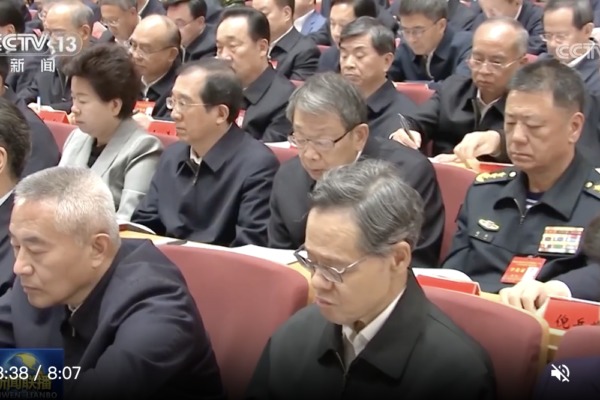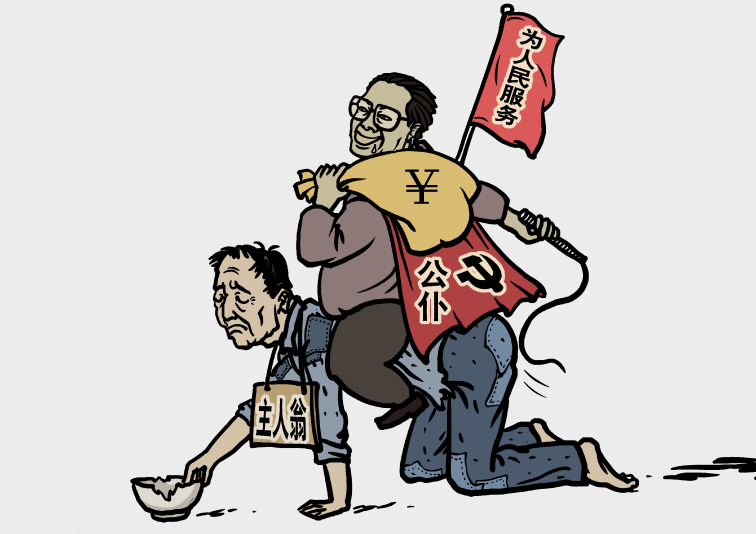The rise of the climax needle in mainland China represents a dangerous frenzy surrounding the concepts of intelligence tax and moral marginalisation. (Illustrative image, AI-generated)
[People News] On International Labour Day, May 1st, a volunteer lawyer group dedicated to combating employment discrimination published a report highlighting the persistent and structural discrimination faced by women in China in areas such as job seeking, pregnancy, childbirth, and career advancement. The report notes that while there has been some initial progress in tackling workplace sexual harassment in recent years, the lack of enforceability in relevant laws and the ongoing reduction of civil rights protection spaces continue to hinder the realisation of women's equal employment rights.
As reported by Radio Free Asia, on May 1st, the volunteer lawyer group against employment discrimination in China released the "Employment Anti-Discrimination Legal Implementation Report (Women’s Edition)," which systematically examines the discrimination issues that women have encountered in the workplace in recent years. The report highlights that the exclusion of women of childbearing age during the recruitment process remains a significant issue, with many employers hesitant to hire female candidates due to concerns about the maternity leave costs associated with the "three-child policy."
In an interview with Radio Free Asia, Guangdong lawyer Lu Miaoqing (陆妙卿) remarked that although the government encourages the creation of a "family-friendly" workplace, most gender equality regulations are still merely guiding documents and lack enforceability: "In recent years, the government has started to implement supportive measures to foster a 'family-friendly' workplace environment, which necessarily requires the protection of women's workplace rights, particularly regarding pregnancy and maternity leave. However, most gender legislation remains at the guiding level, making effective implementation challenging."
Gender Equality Regulations Often Exist Only as Guiding Documents
The report highlights significant gaps in the protection of the rights of pregnant and postpartum women in the workplace, noting that issues such as 'equal pay for equal work' and 'discrimination based on childbirth' remain widespread. It specifically mentions that while the Chinese Communist Party's judicial system has established a cause for 'disputes over equal employment rights' related to employment discrimination, these cases are classified as personality rights disputes. This classification places a heavier burden of proof on workers during litigation.
Additionally, the report cites two cases from Beijing in which female employees were reassigned and had their salaries reduced due to pregnancy. Although they raised anti-discrimination claims, they ultimately lost their cases due to insufficient evidence. The report criticises this classification system for worsening the challenges faced by already vulnerable female workers in asserting their rights.
In Numerous Cases, Most Companies Have Opted to Handle Sexual Harassment Internally
On the issue of sexual harassment, the report notes that some employers have demonstrated increased initiative. Among the 33 cases analysed, 20 companies proactively dismissed the perpetrators of sexual harassment, with 13 of these cases receiving court support that affirmed the legality of the dismissals.
Liu Wei (刘巍), a lawyer with many years of practice in Beijing, stated: 'Since January 2018, the 'Me Too' anti-sexual harassment movement has been making waves in China. Allegations of sexual harassment initiated by women at various levels have reverberated through the education sector, media, public welfare, academia, politics, and religion. For instance, Xianzi (弦子) sued CCTV host Zhu Jun (朱军), and these actions have significantly advanced the prevention of sexual harassment in China.'
Liu Wei noted that since 2018, the 'Me Too' movement has generated significant social reactions in China, raising public awareness of workplace sexual harassment and prompting the judicial system to gradually enhance its response mechanisms. The guiding cases issued by the Supreme Court in 2022 provide clear legal grounds for employers to terminate the employment of perpetrators.
However, the report also cautions that in some instances, companies have withheld wages and year-end bonuses while dismissing perpetrators, and have even refused to pay rightful compensation. Additionally, while some courts have started to accept victim testimonies, the 'Civil Procedure Evidence Regulations' still contain clauses that limit victims' ability to present evidence.
The Space for Rights Protection Organisations is Increasingly Constricted Due to Government Suppression
The report highlights that in recent years, the government has tightened its control over civil rights protection organisations, resulting in significant setbacks for gender equality advocacy efforts. For instance, the gender discrimination report on civil service examinations released by the women's rights organisation 'Employment Gender Discrimination Monitoring Team' in 2023 was removed just days after publication, and its WeChat public account was permanently shut down in early 2025.
This suppression of data disclosure and public discourse hampers the ability of the public to fully grasp the reality of workplace gender discrimination, further limiting the advocacy space for women and their supporters.
The report references earlier coverage by the 'China Youth Daily,' which exposed specific instances of discrimination faced by women during interviews, job transfers, and promotions. A survey conducted by Zhaopin titled '2024 Status of Women in the Workplace' indicates that over half of female respondents have encountered gender discrimination, compared to only 6.6% of male respondents.
The report recommends encouraging trade unions to intervene, advocating for workers' right to refuse to sign salary confidentiality agreements, and incorporating relevant rights into employment documents to prevent the covert practice of 'equal pay for equal work'. Additionally, it urges local procuratorial authorities to accept more reports on women's rights protection through the 'Yixin Weigong' platform, promote public interest litigation, and enhance oversight of employers.
The 'Employment Anti-Discrimination Law Implementation Report (Women’s Edition)', released on International Workers' Day, once again highlights the structural discrimination that Chinese women face in the workplace. Advocates against employment discrimination argue that in the context of official policies promoting childbirth and encouraging women to 'return to the family', the report sends a clear warning: without substantial legal enforcement and public engagement, gender equality will remain a mere formality. Only by improving systems, alleviating the burden of proof, and ensuring transparency of information can a truly equitable workplace future be achieved for Chinese women.
The volunteer lawyer team against employment discrimination, established in 2016, was initiated by 32 lawyers from 14 provinces across China. This group is committed to providing legal assistance to individuals experiencing employment discrimination, addressing various forms of discrimination, including gender and health-related issues (such as hepatitis B and HIV). During the COVID-19 pandemic, this lawyer team publicly reached out to the national 'Two Sessions', urging for greater attention and legislative action on employment discrimination issues.











News magazine bootstrap themes!
I like this themes, fast loading and look profesional
Thank you Carlos!
You're welcome!
Please support me with give positive rating!
Yes Sure!